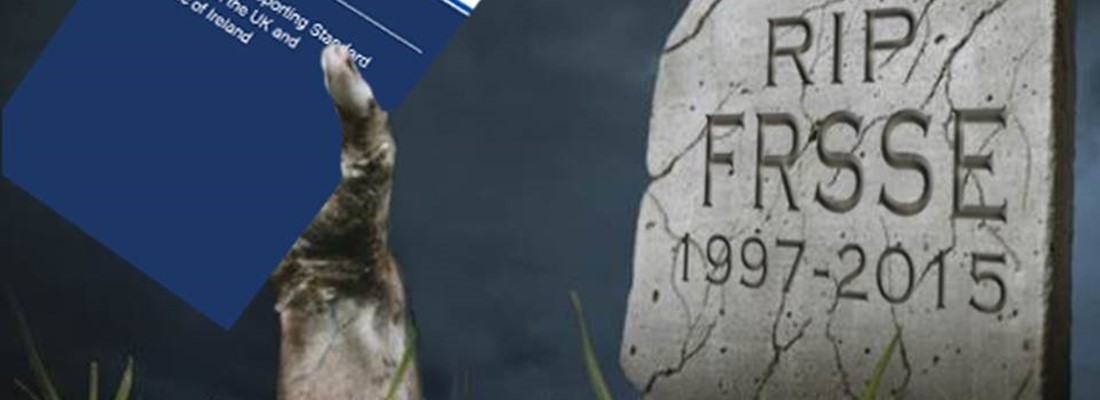The FRSSE – the beginning of the end!!! By Andrew Guentert

An Accountancy Age headline back in 1997 said 'firms split over introduction of FRSSE' with a number of firms opposing its introduction!!
Seems hard to believe now!
The FRSSE has probably been the most popular accounting standard ever published (though the competition for that title is limited) and it has become almost universally used where available.
It is (relatively) simple, is (relatively) well written and for some time has had the additional benefit of being a 'one stop shop' for small company accounting, providing almost all the guidance needed.
Possibly controversially it now looks as if the life of the FRSSE will shortly come to an end?
In FRS 100, published in November 2012, the FRC's 'Application of Financial Reporting Requirements' said that eligible small companies would be able to use FRSSE (2015) and in July 2013 they published a preliminary version of FRSSE 2015 including limited amendments, recognising that the Revised EU Accounting Directive would require substantial further changes to be made before actual adoption.
The problem has been that there are a number of identified discrepancies and inconsistencies between FRS 102 and FRSSE 2015, even leaving aside issues to do with the Accounting Directive.
Originally the FRC had suggested that in the long run these two would converge but in the shorter run it is quite possible that qualifying companies would choose to use either the FRSSE or FRS 102 on the grounds of which provides most benefit to them, most likely choosing that which would minimise accounting profit and also taxable profit - see recent HMRC publications on tax implications of FRSs 101 and 102 (eg http://www.hmrc.gov.uk/accounting-standards/frs102-overviewpaper.pdf ). These HMRC papers recognise that taxable profit will frequently be different under new UK GAAP compared with present UK GAAP.
In an earlier Mercia Blog I referred to an apparent range of alternative acceptable sets of accounts each of which gives a true and fair view (http://blog.mercia-group.co.uk/2013/12/16/what-is-meant-by-true-and-fair-view-and-oh-by-the-way-do-the-standard-setters-actually-know-what-they-are-doing/ ) and the discrepancies between FRS 102 and FRSSE 2015 allowing a choice leading to different profits, and balance sheet totals, and indeed tax payable, does seem one step too far?
It has been known that the Accounting Council and the FRC have been aware of the issue and have been discussing possible actions, but in early February the FRC announced the likely end of the FRSSE in their latest quarterly publication 'Setting the Standard'.
Whilst nothing is yet finalised or confirmed they said:
'the tentative view is that the FRSSE should be withdrawn.. small entities and micro-entities brought within the scope of FRS 102.... FRS 102 would be revised to reflect differing legal requirements, particularly in relation to disclosure' (ie leaving out areas such as cash flow statements, group accounts etc).
This is then followed by 'we anticipate an exposure draft will be issued in June 2014 for consultation'.
So this forthcoming exposure draft will have to reflect the framework and principles of FRS 102, together with the detailed requirements of the EU Accounting Directive. Sounds challenging!
As to when it would be in force, the logical date would be for periods beginning 1 January 2015 as with FRS 102, but this will not leave much time for consultation and implementation. It may also depend upon the date from which revisions to the Companies Act will come into force! Such legislative changes do not allow early adoption but prescribe the date from which they have to be complied with.
It could be argued that the FRC made a strategic mistake back in 2012 in deciding to continue with FRSSE 2015 and should have appreciated the issues better then, but that is all past now.
Watch this space (and also Newswire http://www.mercia-group.co.uk/news/index.htm) for more detail and we would suggest you may like to comment on both BIS's anticipated consultation on changes to the Companies Act and the FRCs consultation on what some have suggested might be called 'FRS 102 lite'!!
We must above all ensure that the changes are appropriate and proportional for the needs of small company users.




